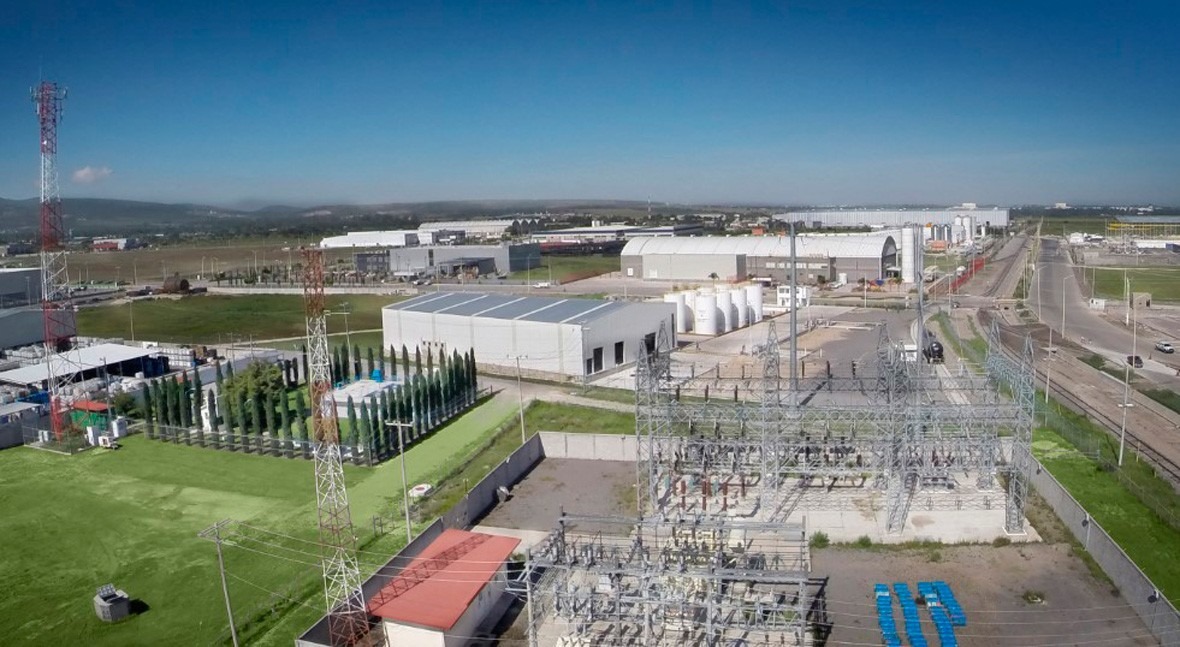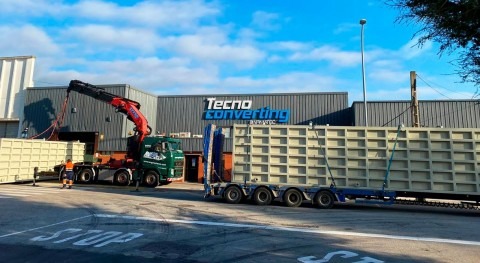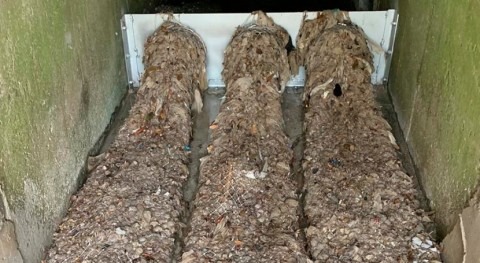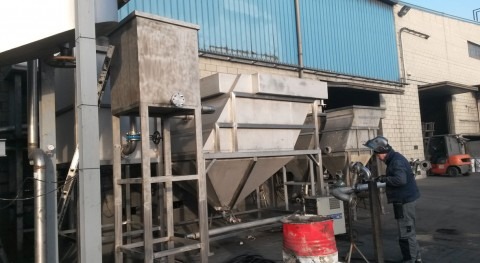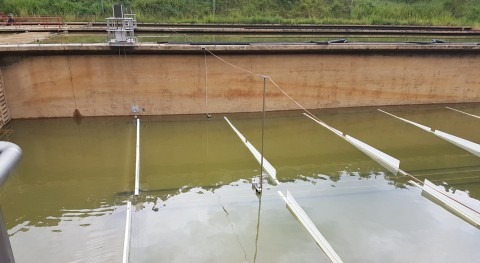In a region such as Latin America and the Caribbean, where water resources are abundant, but unevenly distributed, and where only two thirds of the population have access to safe water, it is imperative to approach integrated water resource management from the point of view of sustainability.
Over the past few years, the region has been working towards a legal framework for the drinking water and sanitation sector, undertaking legislative reforms and reforms in the organisations involved in water management and use. However, the impact of climate change, together with the limited efficiency of water companies and the lack of investment in infrastructure operation and maintenance, interfere with the provision of water services to the population.
Although it is a wealthy region in terms of availability of water resources per person, not everyone has access to water, and so some areas experience serious water problems. Countries such as Peru, El Salvador or Mexico are experiencing unprecedented water stress.
The Mexican industrial sector is aware of the important role of water in all processes, and of the need to have a clean industry
Water management in Mexico
Mexico is a clear example of the main problem in the region of Latin America and the Caribbean: although in absolute terms it is not short of water, the uneven distribution of resources, pollution issues and lack of maintenance of water infrastructure are responsible for water scarcity. Indeed, at the beginning of this millennium, the Mexican Government declared water a public interest issue.
But this concern about water issues was not always so strong. Mexico has a long and established tradition in water resource management that goes back to the 1930s, when the country invested heavily in water storage infrastructure and infrastructure to harness groundwater, in order to expand irrigation and supply water to a growing population. However, water resource management in Mexico has evolved in time, and 1992 was a turning point for national water policy. For a long time water management in Mexico followed a centralised government model, with federal institutions for the most part in charge of managing the resource. After 1992 the paradigm shifted to a decentralised government model and the democratisation of water management, as well as its privatisation.
In 1992, México adopted a National Water Law that established the federal government, through the National Water Commission (CONAGUA), as the competent authority with regards to water. Also, this law enabled the implementation of a regulatory framework to encourage greater efficiency and a more precise perception of the social, economic and environmental value of water. It was later modified in 2004, restructuring at that point the most important functions of CONAGUA. Some centralised responsibilities were transferred to sub-national entities: river basin authorities and river basin councils. Also, it introduced a Water Financing System to create suitable instruments to determine sources of funding, expenditure guidelines, cost recovery, accounting and management indicators.
In a nutshell, in Mexico, the main water resource management responsibilities have been assigned to three groups of entities, the National Water Commission (CONAGUA), at the federal level; the State Water Commissions, at the state level, and river basin authorities and councils.

The challenge of waste water treatment in Mexico
Mexico must deal with declining water availability — it has decreased dramatically over the past 50 years — and this trend is expected to continue. But that is not their only problem. The uneven distribution of water resources in Latin America and the Caribbean is particularly important in this country, with natural differences in availability of water resources across the country. According to Conagua, 60% of the resources are in the south-east of the country, where water availability is seven fold the amount in the rest of the nation. The area is home to only 23% of the Mexican population, generating 14% of the GDP; even so, it has the greatest lag in access to drinking water. In the rest of the country, water is scarce. They are arid and semi-arid areas, where most of the economic and industrial activity takes place.
One of these regions is the Mexican State of Guanajuato, where 74% of the water available for 4.5 million people living in 46 municipalities comes from groundwater abstracted through wells, and the remaining 26% comes for surface waters, increasingly more scarce. In fact, the Guanajuato State Water Commission estimates that groundwater from the phreatic zone is overexploited, and there is already an important deficit. In addition, the lack of public policy and real waste water treatment systems 'means that almost 94% of the water consumed is discharged and pollutes water courses; afterwards, water with all kinds of wastes, including industrial waste, is used for irrigation', according to the water services company Concesionaria Mexicana del Agua.
The last 'Water statistics in México' report published by Conagua in November of 2017 states that water use by the industrial sector amounts to 12% of the total water consumption in Mexico, and although it is not a high per cent in comparison with agricultural use, there is more awareness about the need to preserve the resource. In 2016, according to this report, the industry treated 75.9 m³/s of waste water in 3,041 plants operating nationally. Eduardo Cota, Director of Conservation and Ecological Restoration at Pronatura, in an interview for El País, affirmed that '90% of industrial waste water undergoes treatment', but the problem in Mexico lies in municipal waste water, where only about 40% of waste water treatment plants are working.

'Parque Opción' industrial park
The Mexican industrial sector is, therefore, aware of the important role of water in all processes, and of the need to have a clean industry. With this in mind, the sector is seeking good practices that contribute to better management of the resource, not only concerning savings, but also with regards to water treatment and recovery. In San José de Iturbide, one of the main industrial areas under development at the state and national levels, we find the 'Parque Opción' industrial park, with a surface area of more than 1,600 acres (about 6,474 km2) and with more than 120 factories, most of them leading manufacturers in the automotive, metallurgic, mechanical, chemical and food industries. All waste water discharges and pretreated process water are conveyed to the new waste water treatment plant in the park, designed to handle 60 litres per second, where the company Tecnoconverting has played a key role in this new path for the Mexican industrial sector.

The Tecno-Classic scrapers by Tecnoconverting are a result of the company's constant innovation, using new components to offer the best features. The scrapers at the waste water treatment plant in Parque Opción provide better performance with guaranteed results. The reducers are customised based on the diameters of the settling tanks and the sludge concentrations, and, using a traction system with a central shaft, anchored at the bridge, the bottom scrapers remove the sludge from the tank. All Tecnoconverting equipment — and the Tecno-Classic scrapers are no exception — are conceived to be used with the EASY INSTALL system; this allows easy assembly and reduces costs, since it is not necessary to send specialised Tecnoconverting technicians to assemble the equipment.
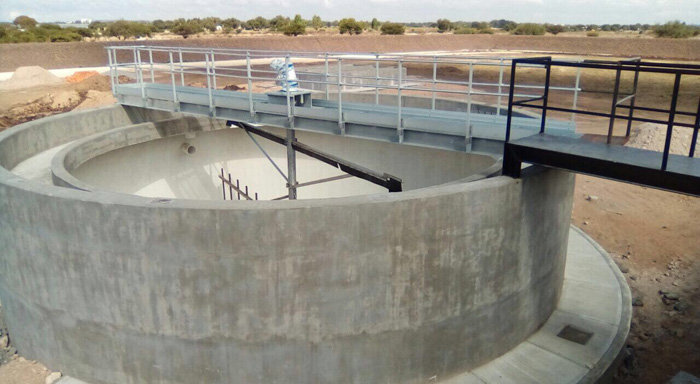
These advances in waste water management allow reusing effluent water for the irrigation of long stem and alfalfa crops. This will help many Mexican families in nearby communities and address the water shortages that are affecting the area of San José de Iturbide.


